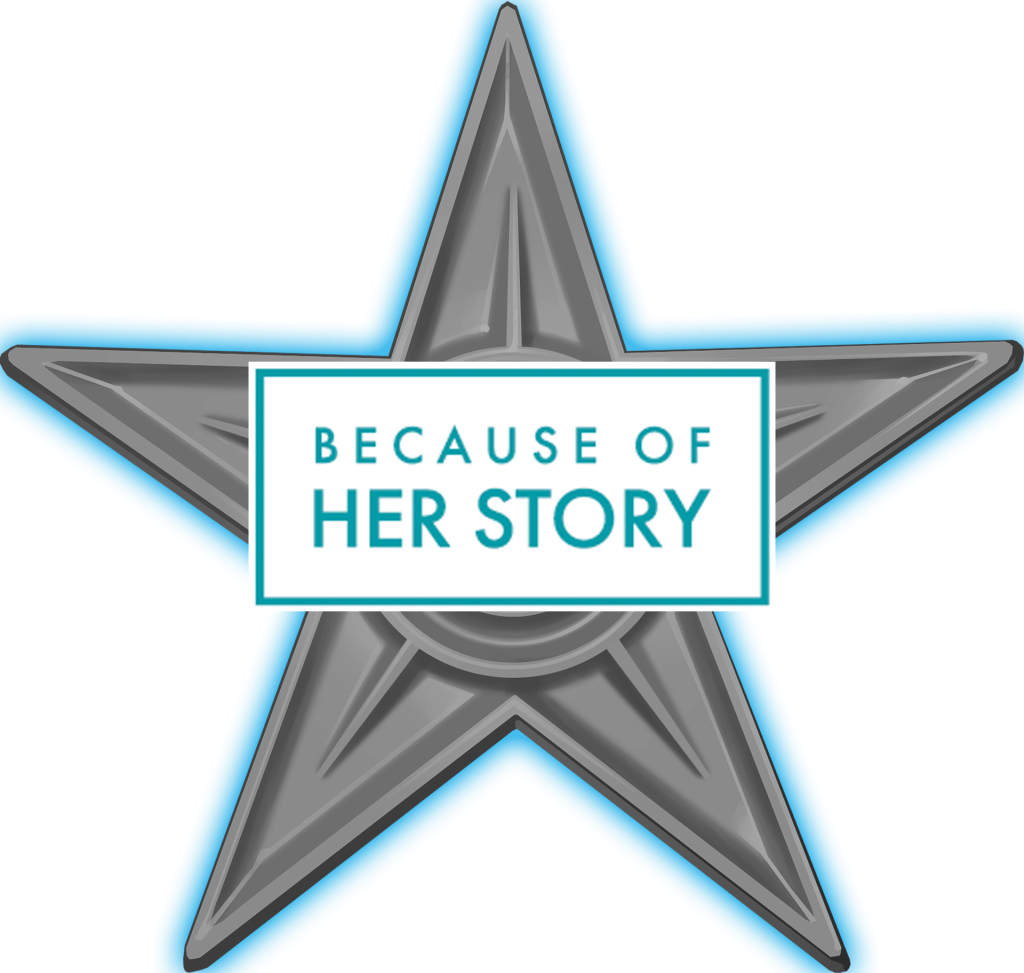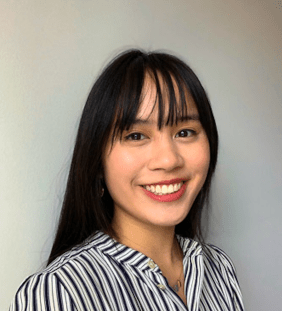In January 2021, I had no experience on any of the Wikimedia platforms. By the end of 2021, I had added over 200,000 words across Wikipedia and Wikidata and assisted in two Smithsonian edit-a-thons.
The Beginning
After completing a digital archival research project on anti-rape protests at The Ohio State University, my friend encouraged me to apply to the 2021 Virtual Because of Her Story (BOHS) internship Project with the American Women’s History Initiative (AWHI) at the Smithsonian Institution. The internship was eight weeks, 40 hours a week, and paid. Without the financial assistance BOHS provided, I would not have been able to do this opportunity.
My BOHS project “Wikimedia, Gender Equity, and the Digital Museum” aimed to “advance gender equity on Wikipedia by making our collections about women accessible on the Wikimedia platforms.” As a Women’s, Gender, and Sexuality Studies major the project appealed to me because disseminating knowledge in accessible ways has been key to many feminists’ organization efforts.
Summer 2021
My mentor Kelly Doyle taught me the basics of Wiki-etiquette, including conflict of interest, determining reliable sources, establishing notability, and adding categories. My first edit was adding the category “South Korean adoptees” to Mia Mingus’ page. Kelly encouraged utilizing the Wikipedia: Task Center to find pages to categorize or copyedit. I then started editing people’s Wikipedia pages. The visual editor was incredibly helpful for me. Being able to make these changes and see the results immediately gave me a lot of motivation to keep editing.
Andrew Lih introduced me and other BOHS interns to Wikidata, Wikipedia, and Wikimedia Commons. I began editing Wikidata and realized Wikidata was more intuitive for me than Wikipedia. I felt comfortable creating Wikidata properties in real time, like when Zaila Avant-garde won the 2021 Scripps National Spelling Bee. I utilized my Wikipedia and Wikidata skills for the Black Women in Food Smithsonian Edit-A-Thon. I created my first ever article for LaDeva Davis and created Wikidata properties for women featured in our Edit-A-Thon.
Before my internship ended, I wanted to complete a passion project so I created the Wikipedia page for the “Asian Americans (documentary series).” Creating this Wikipedia page meant a lot to me because I wanted to highlight Asian-American contributions on Wikipedia. I wanted the page to act in a similar way as the documentary and connect Asian-American Wikipedia pages together in a cohesive and contextually relevant way. Being especially thorough when it comes to Asian-American Wikipedia presence is important to me because omitting details felt like erasing Asian-American contributions all over again.
At the end of my Summer BOHS internship with the Smithsonian I had created 6 Wikipedia pages and 24 Wikidata properties, added 294 references, and wrote ~36,000 words across Wikiplatforms.
Autumn 2021
I had the privilege to continue my internship into the Fall. During the Fall, I presented at WikidataCon 2021, collaborated with the National Air and Space Museum on their Wikipedia Edit-a-Thon, and participated in Wikipedia:Asian Month (finishing in at #18 out of 46 participants). During my fall internship I created 12 new Wikipedia articles and 45 Wikidata properties, added 1,170 references, and wrote ~188,000 words across Wikimedia. I did this all while completing my first semester of graduate school and only working 30 hours a week for AWHI.
Off- Wiki Outcomes
I took my knowledge of the Smithsonian, Wikipedia, and women’s (under)representation to the classroom. I taught undergraduate students how they can find information on women in Wikipedia and Museum databases. We discussed how the internet can replicate biases and how including marginalized groups onto Wikipedia and Wikidata could help combat this. My WikiWork found its way into other people’s classes as well. Professors thanked me for creating the Asian Americans (documentary series) page because they planned on using it in their own courses.
The opportunity AWHI’s BOHS Internship program provided me is invaluable. After completing my degree, I hope to pursue more work with Wikipedia and GLAM institutions. I hope that the Smithsonian and other GLAM institutions continue to create or expand their Wiki-programs. Future interns could potentially add millions of words across Wikimedia platforms and have the tools to create their own passion projects well after their internships have ended.
Mentor Observations
Mia’s contributions to Wikimedia are incredible and far exceeded my expectations. She went from a complete newbie with zero edits to a superstar editor who is now considering Wikimedia and/or open access as a career. Her internship teaches us several things: that it’s possible to pilot Wikimedia focused internships as a model for future engagement at GLAMs, that mentorship and focused Wikimedia guidance produces dedicated editors who care about our movement and, interns have high editor retention after their official role has ended.
Mia participated in community campaigns that intersected with the focus of her internship like Wikipedia Asia Month, and quickly began to navigate between editing Wikipedia and Wikidata. She continues to find connections between Wikimedia and her graduate level coursework. Mia even incorporated Wikipedia into her Spring 2022 Women’s and Gender Studies course at Ohio State University. I’m hopeful that interns focusing on Wikimedia can become an integral part of future GLAM-Wiki engagement.
This summer, I’m co-mentoring two more interns with the Smithsonian Asian Pacific American Center, focused on increasing the representation of Asian Pacific American women on Wikipedia and picking up on Mia’s successes in 2021.
Learn more
- Learn more about the Smithsonian’s Because of Her Story edit-a-thons and Wikimedia related public programs. The Smithsonian #BecauseOfHerStory internship program will start recruiting again the late Fall for Summer 2023. Anyone interested can watch our website for updates or follow the #BecauseOfHerStory hashtag on Twitter for more information
- GLAM organizations can institute paid internships around Wikipedia that benefits access and awareness to their collections and create dedicated Wikipedians. You can read about the Smithsonian’s Institution WikiProject on the English Wikipedia and join the Wikimedians in Residence Exchange Network (WREN) group on Meta-wiki to learn about how to replicate this model within your GLAM organization.
Mia Cariello is currently pursuing a Masters Degree in Women’s, Gender, and Sexualitiy Studies at The Ohio State University.
Kelly Doyle is the Open Knowledge Coordinator for the Smithsonian American Women’s History Initiative.

Can you help us translate this article?
In order for this article to reach as many people as possible we would like your help. Can you translate this article to get the message out?
Start translation

